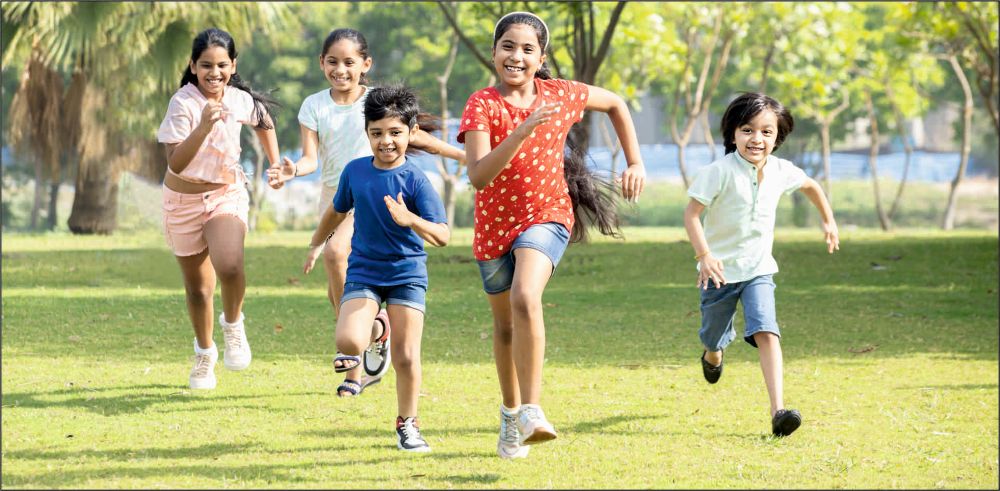![]()
By Shim Mathew,
Director of Academic Operations, Initiatives & International Partnerships, VIBGYOR Group of Schools
For decades, the primary focus of K-12 education has been academic achievement. However, a notable shift is underway, advocating for a more comprehensive approach to student development. With the advent of Education 4.0, associated with the fourth industrial revolution, there’s a growing recognition that academic rigour alone is insufficient for preparing students for the challenges of the future. Education 4.0 aims to revolutionise the educational landscape by leveraging cutting-edge technology and automation, focusing on nurturing essential skills like problem-solving and collaboration. Moreover, it champions the concept of lifelong learning, empowering learners to take charge of their educational journey.
This shift signifies a departure from viewing students merely as recipients of knowledge to recognising them as multifaceted individuals with diverse needs. It underscores the importance of addressing not just academic proficiency but also the physical, emotional, and social well-being of students. By embracing a holistic approach, education endeavours to create an environment where students can thrive intellectually, emotionally, and socially. In this article, we delve into the significance of holistic education and its profound impact on the lives of students.
First and foremost, holistic development recognises that education extends far beyond textbooks and classrooms. It encompasses physical health, encouraging students to engage in regular exercise, maintain a balanced diet, and prioritise their overall well-being. Physical activity not only fosters physical fitness but also enhances cognitive abilities, concentration, and academic performance. Schools promoting holistic development often integrate sports, yoga, and other recreational activities into their curriculum, providing students with opportunities to explore and excel in various physical pursuits.
Equally crucial is the cultivation of emotional intelligence. In today’s complex and interconnected world, the ability to understand and manage emotions is paramount. Holistic education endeavours to create safe and supportive environments where students can freely express their feelings, develop empathy, and build resilience. By incorporating mindfulness practices, emotional literacy programs, and counselling services, schools empower students to navigate challenges, form healthy relationships, and cope with stress effectively.
Furthermore, holistic development emphasises the importance of social well-being. Education is not just about acquiring knowledge in isolation but also about learning to collaborate, communicate, and connect with others. Schools play a pivotal role in fostering a sense of community, inclusivity, and mutual respect among students. Group projects, peer mentoring initiatives, and community service opportunities not only promote teamwork but also instil values of empathy, altruism, and social responsibility.
One of the key benefits of holistic education is its ability to cater to the diverse needs and talents of students. While traditional academic systems may prioritise certain types of intelligence, such as linguistic or logical-mathematical, holistic approaches recognise and celebrate the myriad of intelligence present in every individual. Whether it’s artistic expression, musical talent, or kinesthetic ability, holistic education provides avenues for students to explore and develop their unique gifts, fostering a sense of fulfilment and empowerment. Moreover, holistic development nurtures lifelong learners who are equipped with the skills, attitudes, and values necessary to thrive in an ever-evolving world. By fostering critical thinking, creativity, and curiosity, schools empower students to adapt to change, think innovatively, and pursue their passions with purpose. In a rapidly changing job market, where soft skills and adaptability are highly prized, holistic education equips students with the tools they need to succeed beyond the confines of traditional academia.
In addition to its benefits, holistic development also holds the potential to create a more equitable and compassionate society. By addressing the holistic needs of students from diverse backgrounds and abilities, education becomes a vehicle for social justice and empowerment. Through inclusive policies, culturally relevant curriculum, and equitable access to resources, holistic education seeks to level the playing field and ensure that every child has the opportunity to thrive and fulfil their potential.
However, the realisation of holistic education requires a collective effort from educators, policymakers, parents, and society at large. It demands a shift in mindset, away from narrow metrics of success towards a broader understanding of human flourishing. It calls for investment in teacher training, curriculum development, and infrastructure to support holistic approaches in schools. It necessitates collaboration and dialogue among stakeholders to envision and enact educational systems that prioritise the holistic development of every child.
In conclusion, holistic development is not merely a lofty ideal but a fundamental imperative in education. By nurturing the physical, emotional, and social well-being of students, holistic education cultivates individuals who are not only academically proficient but also resilient, empathetic, and socially responsible. It holds the promise of a brighter future, where education catalyses personal growth, social transformation, and collective well-being. As we embark on this journey towards holistic education, let us embrace the inherent potential of every child and strive to create learning environments that empower them to thrive in mind, body, and spirit.


